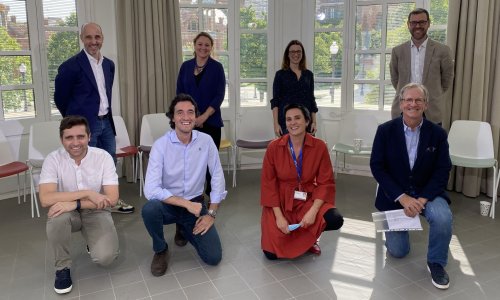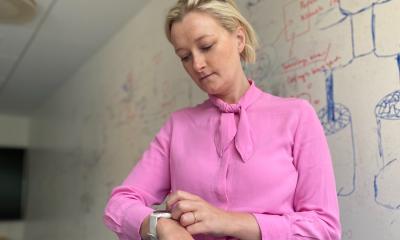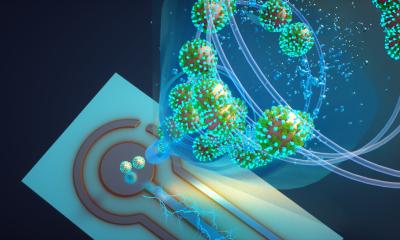News • Coronavirus consequences
Long Covid? There's an app for that
People with long Covid could be monitored with the aid of a ground-breaking mobile phone app and clinical website.
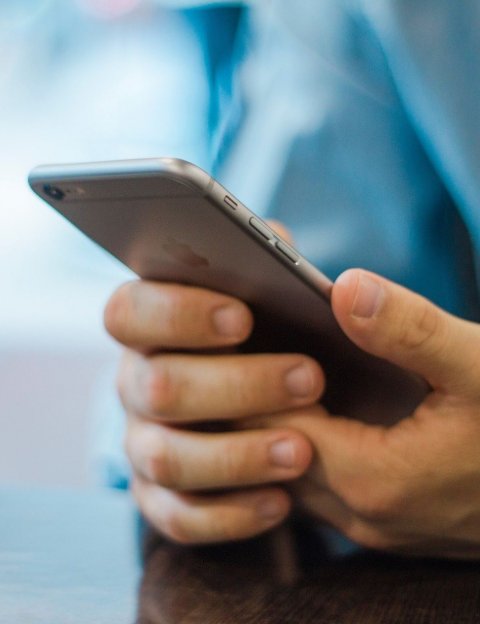
The system has been developed to help NHS rehabilitation teams manage the large number of people suffering from the debilitating effects of the illness. Patients will also be able to use the app to track their recovery. The app will initially be available to patients in 27 NHS trusts and could be extended to others. The public will not have direct access to the app - instead, patients will be invited to download it by their doctor or a member of their rehabilitation team.
Developed in a partnership between the University of Leeds, Leeds Teaching Hospitals and Leeds Community Healthcare NHS Trusts, and the digital health company Elaros, the app will enable patients to self-report their symptoms and the impact their symptoms are having on daily living. The first hospitals to use the system will go live with it on June 1.
Long Covid refers to persistent symptoms that last for four weeks or longer after contracting Covid-19, and include breathlessness, fatigue, brain fog, psychological distress, pain, and a general decline in quality of life. Figures from the Office of National Statistics have revealed that during four weeks in February and March, more than one million people in the UK were experiencing long Covid - including 697,000 people who had experienced symptoms for at least 12 weeks. Of those, about 674,000 said the condition was adversely affecting their day-to-day activities. Approximately 70,000 had been ill for a year.
Recommended article
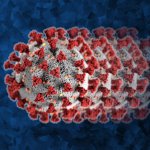
Article • Post-hospitalisation
New study reveals impact of 'Long Covid'
Recovery duration, co-morbidities, mortality, risk groups: A large UK study reports in detail on 'Long Covid'. We spoke with two of the study's co-investigators about why so many patients are still affected after a coronavirus infection.
The information that a patient puts onto the app will be stored on a secure and confidential database which can be accessed by the NHS team involved in their care, to monitor their progress and to evaluate treatment options. Dr Manoj Sivan, Associate Professor in the School of Medicine at the University of Leeds and Consultant in Rehabilitation Medicine at Leeds Teaching Hospital and Community Healthcare NHS Trusts, is the lead academic in the project. He said: “Long Covid is a new condition, and it is causing long-term health problems for many patients. Given the scale of the problem, it is likely to strain healthcare services and burden the economy. We need efficient systems to manage the growing caseload and to standardise care across the NHS. The app and associated web portal will allow healthcare staff to rapidly assess and triage patients. Patients and families can also see their progression and their response to treatments.”
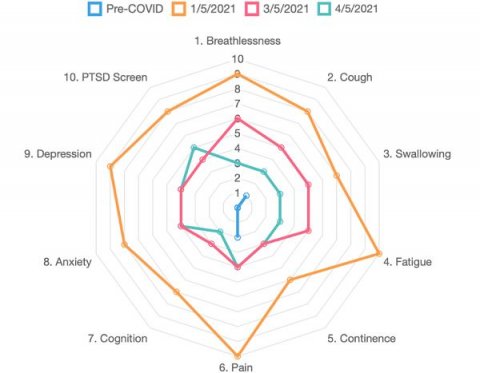
The app takes the patient through a series of questions to record their health status before contracting Covid, and what it is now. The information is displayed in radar plots: one showing the severity of symptoms and the second how the symptoms are impacting on a patient's ability to perform daily activities - their level of functional disability. Patients will be asked to regularly update the app and over time, the radar plots will show what progress they are making towards recovering their health.
Jenny Davison, Physiotherapist and Long Covid Rehabilitation Service Coordinator with Leeds Community Healthcare Trust, said: "A patient will be able to update the app at different stages in their recovery – and it will show them and their clinician how they are improving and what areas might need more targeted input. It provides an excellent visual demonstration of the data in graph format for patient to see at a glance the improvements they have made."
Professor Paul O’Brien, Chief Executive of Elaros, said: “The digital nature of the system will allow us to rapidly improve the clinical tool in partnership with healthcare professionals as we learn more about the condition. Our aim is to help healthcare teams provide the most effective support for patients recovering from long Covid. This is a not-for-profit initiative for all NHS organisations as part of Elaros' contribution to the national effort to tackle Covid.”
The app uses a version of the Covid-19 Yorkshire Rehabilitation Scale (C19-YRS), a questionnaire developed by Dr Sivan and his team during the first wave of the pandemic to aid the diagnosis and assessment of long Covid symptoms. C19-YRS is now widely used across the NHS and has been recommended for routine use by NHS England in their national guidance for post-Covid syndrome assessment clinics. Guidelines from the National Institute of Health and Care Excellence also support its use for comprehensive assessment of patients. If a patient agrees, their responses recorded on the app can be shared with accredited research institutions, but personal details will be removed.
Source: University of Leeds
28.05.2021



